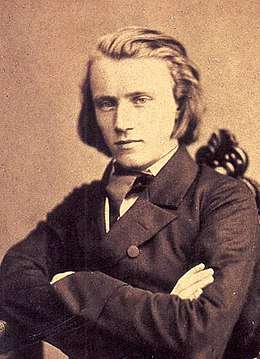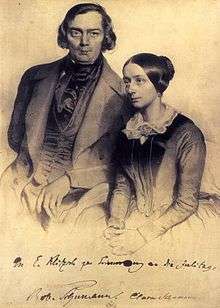Die Blümelein sie schlafen
"Die Blümelein sie schlafen" is a German lullaby, entitled "Sandmännchen" (Sandman), composed by Johannes Brahms. He also composed other lullabies, such as "Wiegenlied".


In General
Sandmännchen, WoO.31-4, is the fourth song in the "Fifteen Folk Songs for Children" composed by Johannes Brahms, originally taken from the songbook of Deutsche Volkslieder collected by Anton Wilhelm von Zuccalmaglio.
A sandman is a fairy in German and other European folk tales who sprinkles sand in the children's eyes at night, making them drowsy. After Robert Schumann died in 1856, Brahms is said to have give the songbook "Fifteen Folk Songs for Children" as his present to Schumann's children.
Words
The words consist of four stanzas, of which the first stanza is as follows: [1][2]
| Original German Text | English Translation |
|---|---|
Sandmännchen |
Sandman |
In Other Languages
This song is also sung in other countries, in German and in various language translations.[3]
A German Christmas Carol
"Zu Bethlehem geboren" (first printed in 1837) composed by the German poet, Friedrich Spee, is a Christmas carol which uses the music of "Sandmännchen".